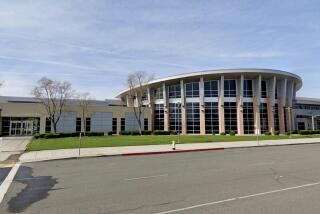Aviation security: Flight attendant aboard aircraft hijacked in 1961 kept her career on course
- Share via
Who knew that the lone flight attendant on the first aerial hijacking of a U.S. passenger plane would be alive, well, and living in Manitowoc, Wis., 50 years later? And that she had hardly skipped a beat before returning to work? Evidently Inez McDermott is not easily intimidated.
I gained a new appreciation for Midwestern stick-to-itiveness when I interviewed McDermott by phone while researching 50 years of aviation security for my story this Sunday in the Los Angeles Times Travel Section. In that story, I quote her dramatic account of how Puerto Rican-born Antulio Ramirez Ortiz commandeered a Key West, Fla.-bound National Airlines flight to Cuba on May 1, 1961.
After glimpsing the man holding a knife on the pilot and gun on the copilot in the cockpit, “I thought I was going to pass out,” McDermott, then 23, told me. Unnoticed — the engines were loud and the hijacker had his back to her — she said she withdrew, took some smelling salts and then quietly began telling her handful of passengers, one by one, what was going on.
For more than three hours, no one in the outside world knew where the Convair CV-440 had gone.
“We disappeared on a cloudless day,” McDermott said.
In fact, the plane was headed for Havana, where, after threatening to shoot it down, Cuban authorities allowed it to land and took the hijacker into custody. Everyone else was allowed to fly back to Florida. It was all over in a day.
Had I been McDermott, I would have found another career. Just the year before, she had lost friends in the bombing of another National Airlines flight that killed all 34 aboard.
But McDermott, then Inez Harlow, said she continued to work for several more months until she married a Navy pilot. Typically, flight attendants back then were not allowed to wed, and she had to quit. But in 1990, she said, she returned to the skies for Midwest Express, later Midwest Airlines.
“I loved the job,” she said.
And yes, she was at work on Sept. 11, 2001, when her New York-bound plane was grounded in Milwaukee in the aftermath of the devastating airliner attacks by Al Qaeda radicals. That didn’t sour her on flying either.
She is stoic about the risks of terrorism.
“If someone wants to blow up your airplane, they will find a way,” she said.
McDermott retired in 2009.
RELATED:
U.S. aviation security timeline
Graphic: Prototype security system
More to Read
Sign up for The Wild
We’ll help you find the best places to hike, bike and run, as well as the perfect silent spots for meditation and yoga.
You may occasionally receive promotional content from the Los Angeles Times.




